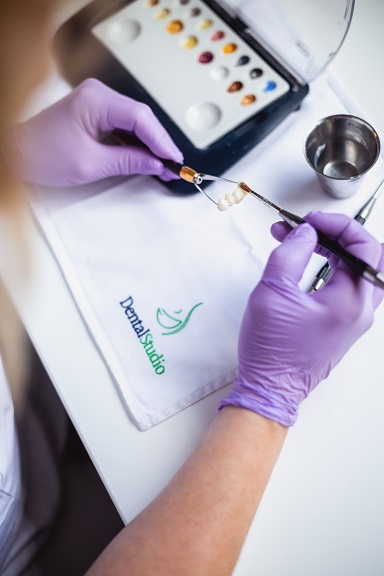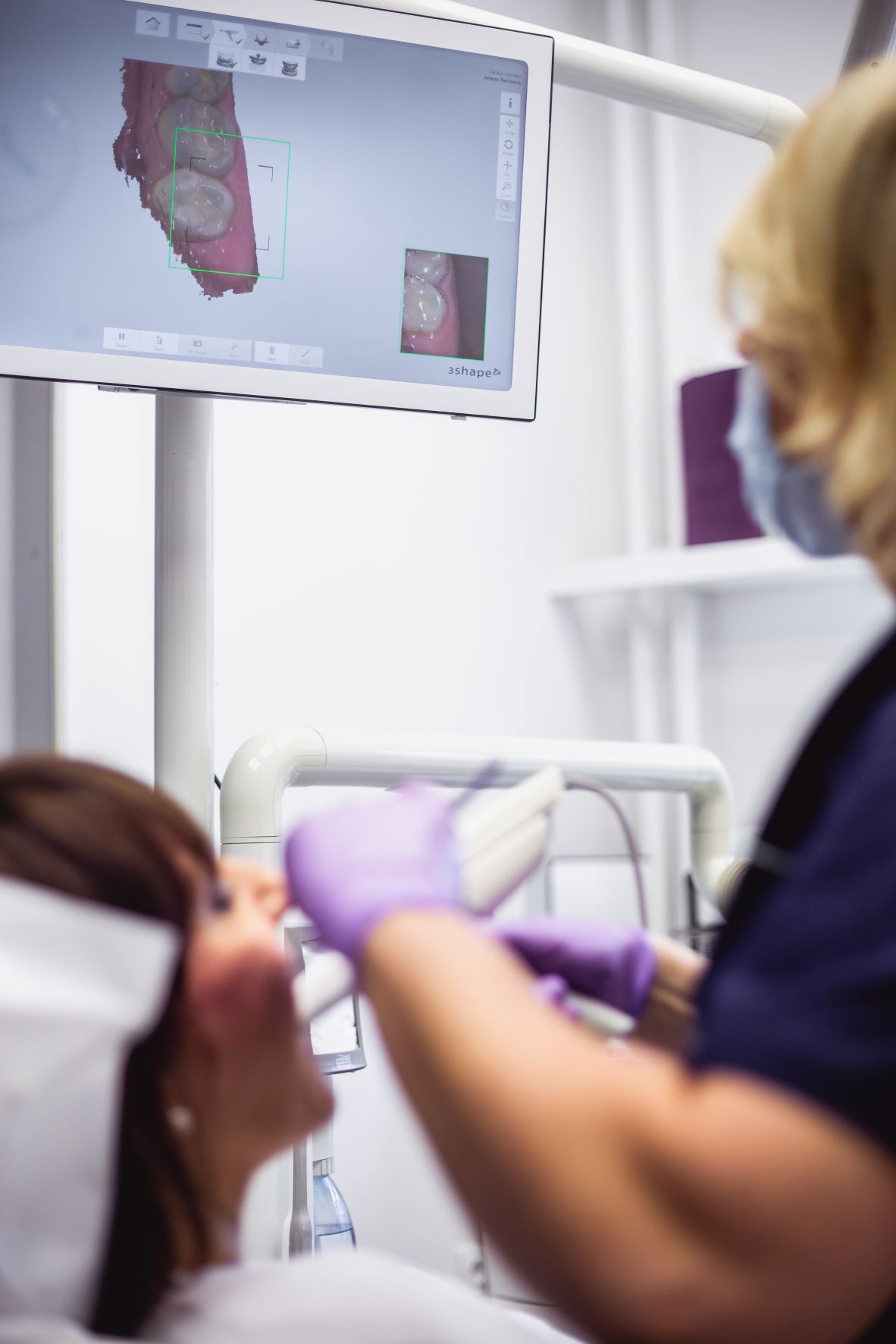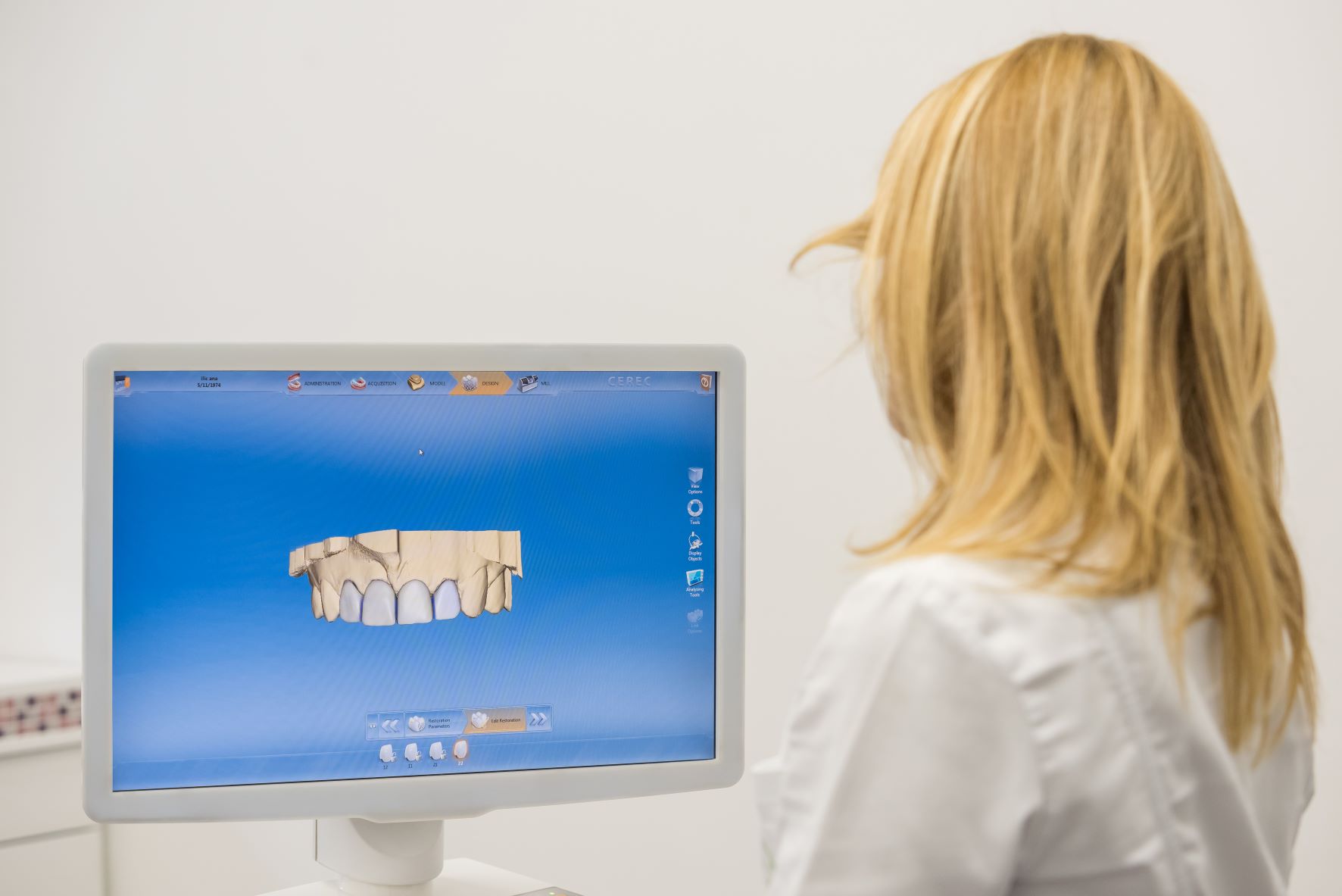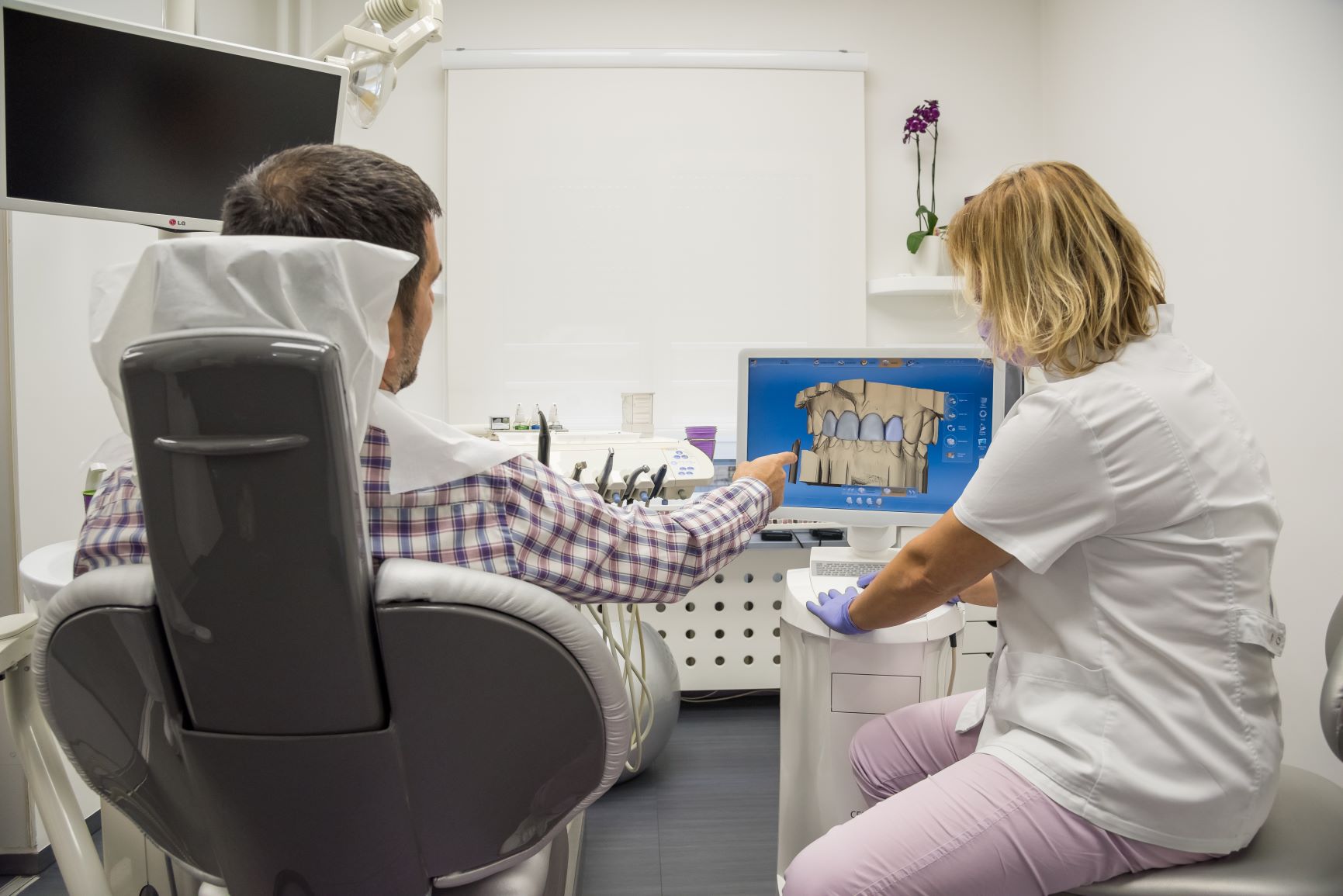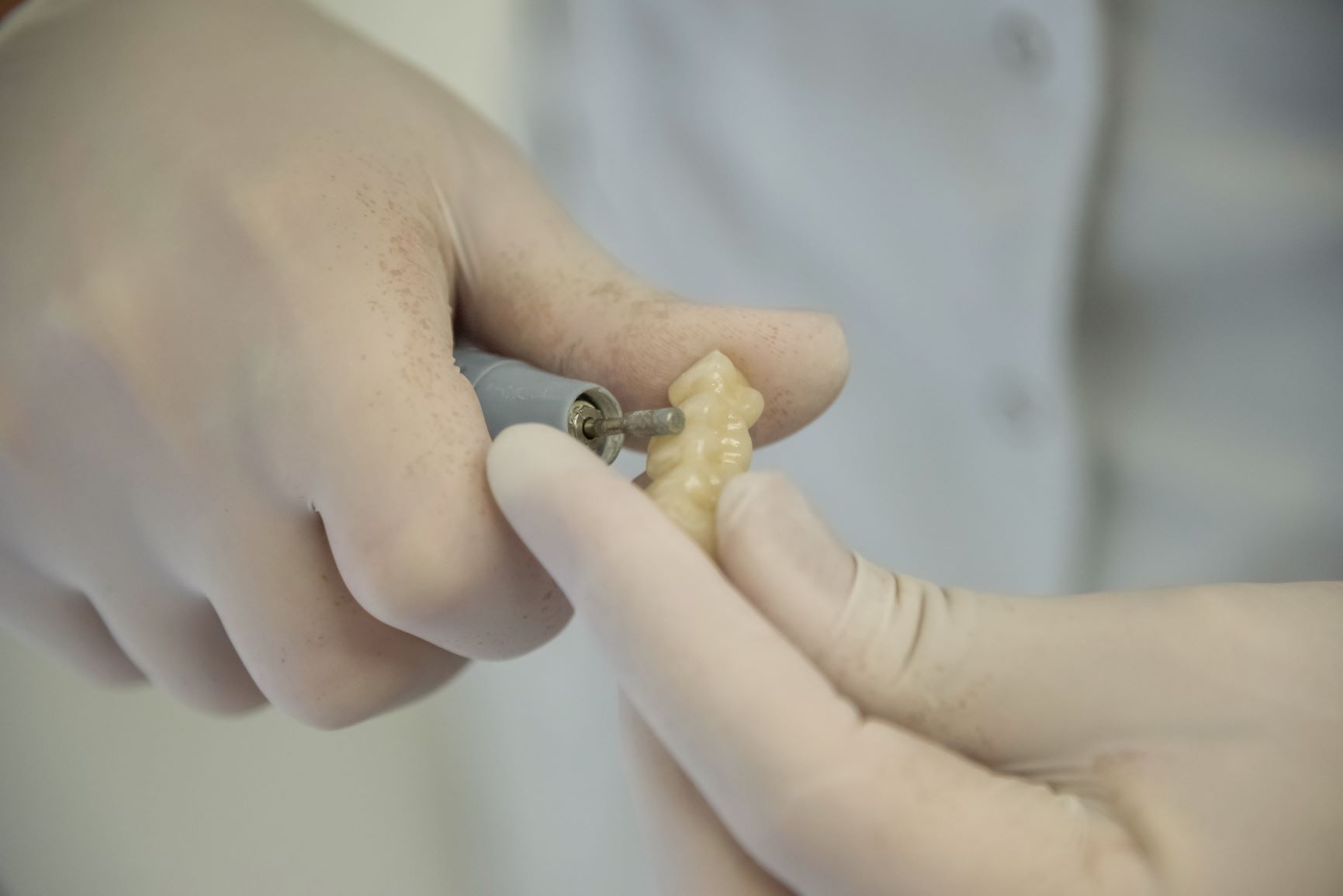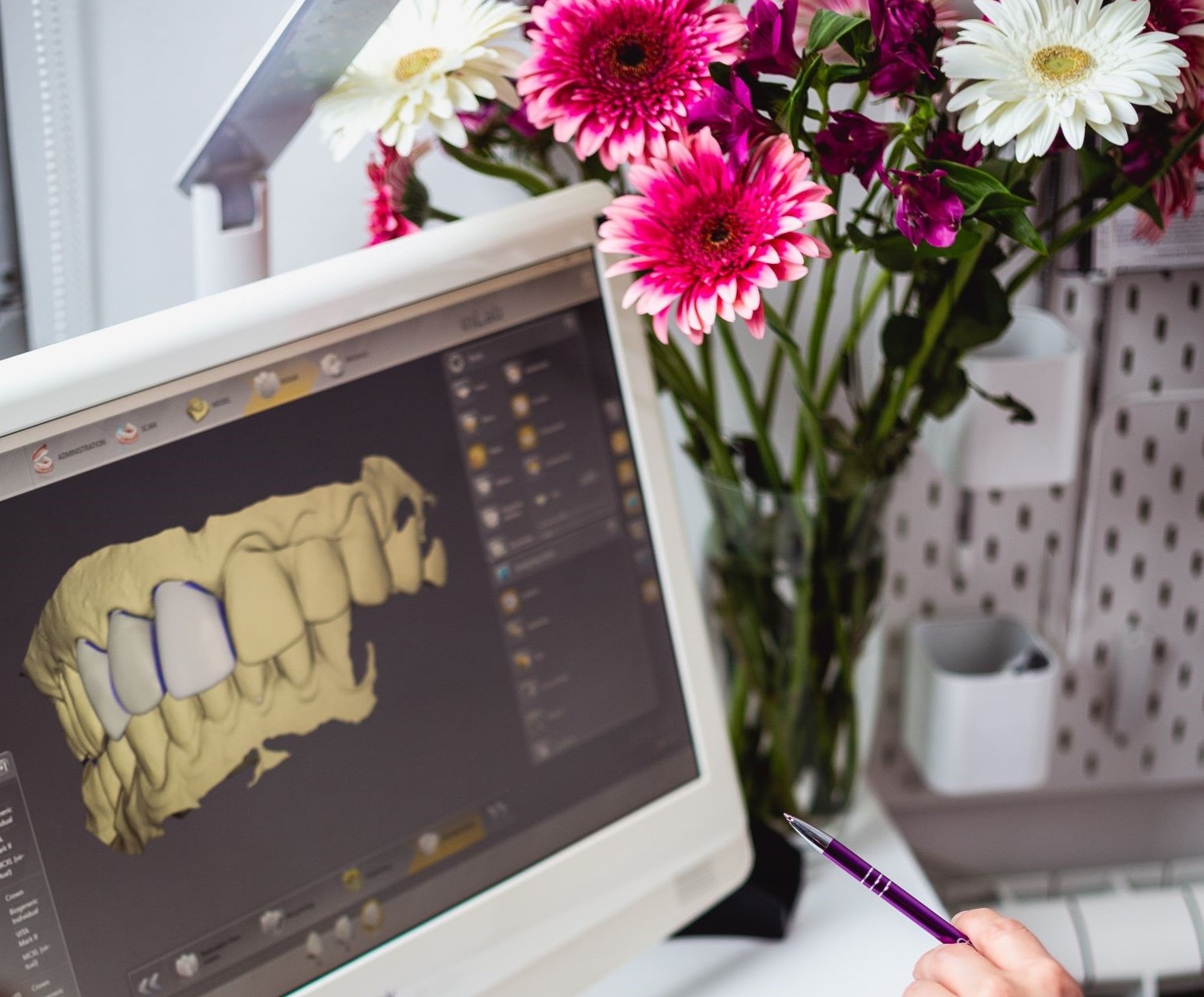A branch of dentistry specialised in restoring lost and reconstructing the existing teeth for a healthy, more functional and beautiful dental arch. With a wide array of prosthetics services, depending on medical indications, as well as a patient’s wishes and capabilities, we analyse a patient’s status and provide our opinion and recommendations for the choice of prosthetic compensations and a comprehensive description of prosthetic procedures, with commitment and satisfaction.
Non-metal crowns have replaced now obsolete metal crowns and represent and combination of quality and durability. Metal casing that was once used as a basis for porcelain is replaced with zirconia, alumina and empress, for higher light transmission and natural reflection, providing teeth with a glassy and more natural appearance.
In addition to compatibility with natural tissues and aesthetic advantages, materials for non-metal crowns are more resistant to plaque. Also, there is no risk for patients sensitive to specific metals, as well as no risk of corrosion processes.
Metal-ceramic crowns are a conventional type of prosthetic compensations that include a metal core (cap) covered by excellent-quality ceramics. This type of compensation is recommended for the lateral sector because light reflection is not complete due to a metal casing under the ceramic crown, and therefore it does not provide satisfactory aesthetic results at the front, although it provides maximum mechanical support.
Skeletal dentures with attachments are recommended for areas where implants and tooth reconstruction with fixed compensations are not possible due to specific therapeutic reasons or indications. As the name suggests, the compensating teeth are produced on a fine metal skeleton, with attachments for ‘clasping’ to the existing teeth. Materials used for these dentures are compatible with tissues and patients get used to them easily in regard to chewing and oral hygiene.
Complete or acrylate dentures are designed for completely toothless patients. After their production, a process of adaptation is required for a patient to get used to the look and, primarily, function of total dentures. They are attached to jaws with saliva as an adhesive, based on the vacuum principle, so they have certain limitations compared to skeletal dentures. Regular hygiene of complete dentures is very important. It is advised to brush them after every meal with a soft toothbrush and a non-abrasive toothpaste, in order to prevent food residue under dentures, irritation and gum inflammation. At night, dentures are removed for soft tissues to rest. Due to the above-mentioned limitations, it is important to retain every tooth, because it will serve as support to a future denture, contributing to its stability.

